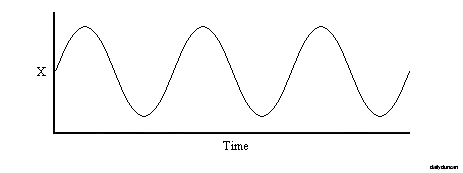- Common problems with written communication
- Continuity
- Length
- Relevant information not included
- Irrelevant information included
- Overdeveloped ideas
- Underdeveloped ideas
- Omission of information
- Benefits of point form
- Separate ideas
- Ensure continuity
- Establish framework
- Manage document length
- Plan idea development
- Include all critical information
- Examples
- Outlines
- Problems with written communication
- Continuity
- Length
- Omission
- Benefits of point form
- Establishes framework
- Separates ideas
- Examples
- Outlines
- Problems with written communication
- Benefits of point form
- Examples
- Drafting an essay
- Event planning
- Outlines
- Presentations
- List of items
- Instructions
- Index
- Drafting an essay
- Introduction
- First point
- Second point
- Third point
- Conclusion
- Event planning
- Essential information
- Invitations
- Decorations
- Seating
- Food and drink
- Entertainment
- Accommodations
- Presentations
- Business proposal
- Educational presentation
- List of items
- Category 1
- Category 2
- Category 3
- Instructions
- Product assembly
- Extracting computer files
- Windows
- DOS
- Index
- Drafting an essay
- Introduction
- Thesis statement
- Outline of three points
- First point
- Explain
- Support
- Quote
- Story
- Data
- Second point
- Explain
- Support
- Quote
- Story
- Data
- Third point
- Explain
- Support
- Quote
- Story
- Data
- Conclusion
- Summary
- Explain connection between points and thesis
- Planning events
- Essential information
- Event name
- Date
- Start time
- End time
- Location
- Guest list
- Invitations
- Include essential information
- Use attractive and appropriate design
- Don’t use Comic Sans
- Decorations
- Flowers
- Lights
- Plates and cutlery
- Seating
- Chairs
- Tables
- Food and drink
- Appetizers
- Cheese and crackers
- Crudités
- Chips and dip
- Deviled eggs
- Entrees
- Fish
- Chicken
- Beef
- Lamb
- Dessert
- Cake
- Mousse
- Pudding
- Drinks
- Champagne
- Beer
- Wine
- Soda
- Water
- Alternatives for those with allergies or moral issues with certain foods or beverages
- Entertainment
- Choose appropriate music
- Rap
- Jay-Z
- Lil Wayne
- Eminem
- Dr. Dre
- Country
- Brad Paisley
- Taylor Swift
- Tim McGraw
- Electronic
- Daft Punk
- Moby
- Depeche Mode
- Rock and/or roll
- The Beatles
- Bob Dylan
- Elvis Presley
- ACDC
- Classical
- Beethoven
- Bach
- Mozart
- Chopin
- Activities or games
- Karaoke
- Charades
- Apple bobbing
- Musical chairs
- Simon says
- Professional entertainers
- Musician
- Clown
- Hypnotist
- Animals
- Pony
- Horse
- Tarantula
- Accommodations
- Parking
- Restrooms
- Travel
- Taxi
- Limousine
- Airplane
- Helicopter
- Lodging
- Presentations
- Business proposal
- Introduction
- First point
- Data
- Chart
- Graph
- Statistic
- Summary
- Second point
- Data
- Chart
- Graph
- Statistic
- Summary
- Third point
- Data
- Chart
- Graph
- Statistic
- Summary
- Summary
- Projections
- Costs
- Returns
- Risk
- Educational presentation
- Introduction
- First point
- Media
- Image
- Video
- Music
- Sound
- Explanation
- Second point
- Media
- Image
- Video
- Music
- Sound
- Explanation
- Third point
- Media
- Image
- Video
- Music
- Sound
- Explanation
- Conclusion
- Media
- Image
- Video
- Music
- Sound
- List of items
- Category 1
- Item 1
- Item 2
- Item 3
- Category 2
- Item 1
- Item 2
- Item 3
- Category 3
- Item 1
- Item 2
- Item 3
- Instructions
- Product assembly
- Introduction
- Description of product
- Diagram of completed product
- Supplier contact information
- Warning
- Outline
- List of tools and components
- Wrench
- Nuts
- Bolts
- Hammer
- Nails
- Screwdriver
- Screws
- Wooden dowels
- Step 1
- Diagram
- Instruction
- Caution
- Step 2
- Diagram
- Instruction
- Caution
- Step 3
- Diagram
- Instruction
- Caution
- Congratulations
- Description of product use
- Diagram of product in use
- Introduction
- Extracting computer files
- Windows
- Locate file
- Find (Windows key + F)
- Windows Explorer (Windows key + E)
- Navigate to file location
- Determine file type
- Zip
- Rar
- Exe
- Run extraction program
- Zip
- WinZip
- Rar
- WinRAR
- Exe
- Windows Installer
- Choose target location
- Extract files
- Exit extraction program
- DOS
- Product assembly
- Locate file
- [file drive]:
- dir *[filename]*.* /s
- Determine file type
- Zip
- Choose target location
- Create directory
- md [target drive]:\[target path]
- Exe
- Run extraction program
- Zip
- PKUNZIP
- pkunzip [file drive]:\[file path]\[filename].zip [target drive]:\[target path]
- Exe
- Self-installer
- [file drive]:\[file path]\[filename]
- Choose target location
- Index
- Accommodations, Event, 3.3.7
- Benefits, Writing, 2.0
- Business, 3.4.1
- Category, List, 3.5.1, 3.5.2, 3.5.3
- Conclusion, Essay, 3.2.5
- Continuity, Writing, 1.1
- Decorations, Event, 3.3.3
- DOS, 3.6.2.2
- Drafting, Essay, 3.2
- Entertainment, Event, 3.3.6
- Event planning, 3.3
- Extracting files, Windows, 3.6.2
- Extracting files, DOS, 3.6.3
- Food and drink, Event, 3.3.5
- Framework, Writing, 2.1
- Instructions, 3.3.6
- Invitations, Event, 3.3.2
- Length, Writing, 1.2
- List of items, 3.5
- Omission, Writing, 1.3
- Outline, 3.1, 3.3.1, 3.3.3.1
- Presentations, 3.4
- Problems, Writing, 1.0
- Product assembly, 3.6.1
- Proposal, Business, 3.4.1
- Seating, Event, 3.3.4
- Windows, 3.6.2.1
Month: October 2013
Sleeplessness
Is insomnia the inability to sleep or the ability not to sleep?
Perhaps insomniacs represent the next next stage in our evolution. Perhaps the human race has already begun its transition to a sleepless state.
En Retard: Part II
In part I we were introduced to the r-word movement, discovered the nature of slurs, slang and insults, and we also discredited the assertion that words like retard are unacceptable because they are offensive slurs with a history of clinical use. But we left one question unanswered: why is there so much concern about the use of this word in particular? There are at least three possible explanations for this.
The first reason could be the simple randomness of language. The evolution of terminology is often unpredictable and cannot always be explained. For example, there isn’t a logical reason why it’s okay to call a Caucasian person white or a person of African descent black, but it’s not okay to call an Asian person yellow or a Native American red.
Another possible source for the concern around a specific term could be special interest groups. These organizations champion only a single cause and seek to generate as much support and attention as possible. It could be that there are simply a greater number of groups, or merely more influential groups, dedicated to the eradication of the word retard than most other terms, which leads us to our third and final possible explanation.
Humans have the ability to feel empathy for, and can generate sensitivity on behalf of, a perceived offended party. Our concern for others, especially those we consider vulnerable, allows us to take offense to an insult directed at another person and to a slur with which we have no association. Perhaps the word retard demands greater sensitivity because those with mental disabilities are especially unfit to defend themselves on both the individual and public levels. This would explain the localized sensitivity surrounding some people groups, namely those who were once neglected or persecuted.
Regardless of the cause (or combination of causes), this crusade to banish the word retard from the face of the Earth is not likely to dissipate any time soon. But is this aim even achievable? And if it is, is this a reasonable and permanent solution to the problem? Fortunately, this is not the first time that a term has been officially replaced due to sensitivity. In fact, several successors to the word retard have already been proposed, implemented and eliminated.
The word retard is derived from the French word, which literally translates “to slow or delay,” and as we already discussed, was a clinical term used to describe a person who was mentally underdeveloped. Now let’s try to understand how the evolution of terms progressed.
Based on what we learned about the nature of insults, people likely started to use the term retard as an insult. After all, what better way to attack someone than to infer that they suffer from a mental disability? Either by intent or natural progression, the term handicapped became an acceptable alternative, but it too was eventually used as a verbal attack. Its decline is partially attributed to its association with disabled Civil War veterans who begged on the street. Although this use of the word is not historically corroborated, the negative associations are quite real.
After handicapped came the terms special needs and disabled, which were considered more pleasant and accurate euphemisms, but special needs has since become unacceptable. In an article by Key Ministry, titled Is “Special Needs” Acceptable People First Language? the author argues that,”‘Special’ often carries with it the connotation of separate or segregated,” and goes on to claim that children with disabilities, “are desperate to not be seen as different… who would prefer to fail in school as opposed to be seen as different by their peers.”
The term disabled has also been deemed inappropriate by those on the cutting edge of sensitivity because it defines an individual by their condition. This has lead to the creation of the current label, person [living] with a disability. The idea is that by describing those with disabilities as people first, the disability does not become their identity or defining feature. Here are some examples of how this terminology works:
- Blind person becomes person who is blind or person living with blindness.
- Obese person becomes person who is obese or person living with obesity.
- Drug addict becomes person who is addicted to drugs or person living with drug addiction.
- Mentally disabled person becomes person who has a mental disability or person living with a mental disability.
- Dead person becomes person who is dead or person who is living with death.
Although attempting to protect the dignity of those with disabilities is a noble cause, it seems as though the revision of terminology is a futile endeavor. Sure, we might generate enough awareness and support to have a governing body pass legislation to change official terminology. And sure, we might get the common person to remove a word from their vocabulary, but in the end, no matter what new words are chosen, they will eventually fall into the mouths of those who care nothing for the troubles of others. This is because – and this is the important part – there is no intrinsic good or evil in a grouping of letters or sounds. Words mean whatever we decide they mean, and by abandoning corrupted words, we’re allowing these insensitive, uneducated individuals to determine their meaning.
Another problem with attempting to change language is that by producing long and technical alternative terminology, we’re asking people to be very deliberate in their descriptions of those with disabilities, which isn’t how we talk about any other group. Old people are not living with old age; they’re old. And blonde people are not living with blonde hair; they’re blonde. By using alternate language for groups such as those with disabilities, we’re acknowledging that they are different and should be treated differently, which only fuels the segregation that many are striving to erase.
So if replacing offensive words is not a reasonable solution, what, if anything, can be done? There are actually three potential solutions to this problem, with the first being the option we just explored.
- Banish offensive words and replace them with new ones.
- Stop people from insulting each other.
- Stop taking offence on behalf of others and stop allowing ourselves to be insulted.
We already discussed how the first solution provides only temporary relief from the issue, so what about the other two? Well the ideal answer is actually the second one, but in order for it to succeed, humanity would have to undergo a massive behavioral shift. As we already mentioned in part I, humans learn to insult one another at an early age, and it’s not always done with malicious intent. Insults play a significant role in comedy, business and politics, and when combined with sarcasm, they can even be used to flatter. As a crucial tool of communication, it’s unlikely that we’ll see the end of insults any time soon.
Recent hate crime legislation attempts to address the issue of crimes specifically targeting certain people groups, and there are those who believe that we should apply these principles to protect groups from slurs. Aside from violating the freedom of expression, attempting to legislate language would be a horribly arduous and complex task. Also, the concept of extending special legal protection for some individuals creates a huge problem in terms of consistency; and we can’t have fairness and equality without consistency. If we’re going to retire or ban every term that offends, then there are thousands of words in need of revision.
The third and final option doesn’t really seem like a good solution. After all, allowing something to happen is seldom a feasible approach to prevention. But in this case, it’s actually the best choice and here’s why:
Because we know that we can’t stop insults and because of inherent negative associations with disabilities, along with many other traits and characteristics, insensitive individuals will continue to attack others using these labels, the only element that we can actually control is ourselves.
As we discussed in part I, in order for an insult to be effective, both the speaker and the audience must understand the negative association with the chosen word or phrase. If we call someone a retard, it’s insulting because both parties understand that being retarded is bad. In the same way, calling someone fat or stupid is slanderous because our society identifies obesity and poverty as undesirable qualities. If someone thought that being fat or stupid were somehow desirable traits, then it would be impossible to attack them with these words.
By allowing ourselves to take offense to, or be insulted by, a label, we’re acknowledging the negative association with that people group. The only way we can thwart the endless onslaught of insults is to refuse to recognize the negativity attached to those words, and by extension, the people groups they represent. We must reclaim the destiny of diction from the hands of those who would use it to hurt, and we must recognize that all members of society are of equal value and deserve equal legal protection and public recognition. If we really believe that the disabled with are people first and we don’t wish to segregate them, then we should afford them every and only every right afforded to others, including the dignity of ridicule.
En Retard: Part I
The world is changed. Smoking marijuana is hip, but smoking cigarettes is disgusting. Profanity is simply an expression, but racial slang is bigotry. Today we will be discussing the evolution of language, specifically targeting changes caused by increased sensitivity toward certain terms, namely the word retard.
The website www.r-word.org is dedicated to the eradication of the term retard and offers visitors an opportunity to pledge to never use the word again. It also posts stories submitted by those who have been affected by the word. Here’s one from Mia Kraker:
“I was at recess when someone in my class called my friend the r-word. The r-word is extremely hurtful to many people. I am working to stop the r-word and people all over should be, too.”
Now this story definitely isn’t one that sparks faith in humanity, but it’s interesting that the storyteller is expressing dissatisfaction with the perpetrator’s choice in terminology, not the fact that her friend was publicly berated. Here’s another story, submitted by Maggie Scott:
“…in my hallways at school I hear the people call many people many names including the r-word. But why does our world have to be like this? It doesn’t and I’m ready for a change…”
This person is obviously disappointed that her fellow students use derogatory language, as she should be, but she notes that the term retard is only one of “many names” being thrown around. It seems as though Maggie, like Mia, isn’t so much concerned with name-calling or harassment as she is with the use of the word retard, which causes one to wonder why this word is considered especially offensive.
Ellen Seidman, in her article 5 Things People Don’t Get About the Word “Retard”, makes this statement regarding the term, “…The word ‘retarded’ derives from the term ‘mental retardation.’ Years ago, that was a clinical diagnosis used to describe people with intellectual disability. But words evolve and change meaning, as words tend to do, and the words ‘retard’ and ‘retarded’ have evolved into insults. In 2010, Congress itself replaced ‘mental retardation’ and ‘mentally retarded’ in federal health, education and labor laws with the term ‘intellectual disability.’ The word ‘retarded’ has morphed into a slur – why many people are shunning the word.”
Seidman is correct, the word retard was once a clinical term that has since devolved into a slur. However, her assertion that people are shunning the word because it is slur is not accurate, for there are many commonly used slurs that our society tolerates. Before we continue, let’s establish a definition of the term slur and distinguish it from its cousin, slang.
Slang is casual or informal language that denotes familiarity with the mundane and reduces discomfort with the taboo. Here are some examples:
- Money (coin, cheddar, clams)
- Sex (shag, get lucky)
- Murder (whack, hit, waste)
- Automobile (ride, wheels)
- Cocaine (blow, nose candy, snow)
While slang and slur sometimes overlap, a slur is an offensive term that describes a people group, such as a race or ethnicity. In other words, slur is slang used to insult others by associating them with a type of person, regardless of whether or not the label is accurate.
Unfortunately, this definition is much more broad than we might think. After all, there is no supreme authority determining what is or is’t offensive, for that depends on the audience. Also, if a slur can target any group of people, then this would include every physical, mental, emotional, religious, genetic or social characteristic by which we might be identified. Here’s a list of some groups whose titles are deemed acceptable slurs:
- Nationality
- American (Yankee, redneck)
- Canadian (Canuck, Newfie)
- British (limey, redcoat)
- French (frog)
- German (kraut)
- Physical Condition
- Overweight (fat)
- Underweight (twig, stick)
- Young (child, baby, immature)
- Old
- Crippled (lame)
- Athletic (jock)
- Weak (sissy)
- Intellectual (nerd)
- Blind
- Deaf
- Mute (dumb)
- Alocholic (boozer, wino)
- Drug-addicted (junkie, crackhead)
- Appearance
- Ugly
- Red-haired (ginger)
- Blonde-haired (dumb blonde)
- Bald (cue ball)
- Short (shrimp)
- Acne (crater-face)
- Glasses (four-eyes)
- Mental Condition
- Unintelligent (stupid, idiot, moron, imbecile)
- Schizophrenic (crazy, nut, fruitcake)
- Psychopath (insane, psycho, wacko)
- Depressed (emo)
- Social or Economic Status
- Poor (trailer trash)
- Wealthy (spoiled, filthy rich)
- Uneducated (stupid, dunce)
- Unemployed (deadbeat)
- Unsuccessful (loser, failure)
- Profession
- Police Officer (pig, narc, dick)
- Lawyer (rat, shyster)
- Psychologist (shrink)
- Janitor
- Prostitute (hooker, hoe)
- Used Car Salesperson
- Taxi Driver (cabbie)
- Carnival Employee (carny)
It’s difficult to determine why terms like redneck and redcoat are acceptable, while redskin is considered unacceptable, or why it’s okay to mock someone for wearing glasses, but not for using a wheelchair. Regardless, it’s obvious that using a label or characteristic to attack others is not in itself enough to incur public rejection. Perhaps, then, it’s the fact that retard was once a clinical term that causes the controversy, but the terms idiot, lame, and crazy were also used to describe medical or psychological conditions and are now considered acceptable.
As Maggie Scott’s story revealed, we use a variety of words to insult one another, so what makes retard uniquely objectionable? To answer this question, we must first understand how and why words become insults.
If we ponder classic insults such as fat, poor, stupid or ugly, we realize that they share something in common, and that is an association with negativity. Implicit-association tests reveal that we all harbor unconscious positive and negative sentiments toward certain people groups. The origin of these associations is not always understood, but it’s not hard to imagine why a person would hold a negative view of ugliness or stupidity. The truth, no matter how we dress it up, is that we don’t want to be fat, poor, stupid, ugly or retarded, and this is the foundation for every insult – a negative association between a term and a condition.
As we grow and interact, we absorb and catalog information, whether we’re aware of it or not. Part of this process involves learning which personality traits, professions and body shapes are undesirable. Parents, teachers, friends, magazines, television and movies all reveal expectations and role models as well as examples of failure and corruption. Even at a young age, children are well aware of the values and qualities that their culture deems unacceptable, and they have firmly established negative associations. This is exemplified by the schoolyard bullying and teasing that most children endure.
So what’s the real problem here? Is it that we say words some consider unacceptable, or is it that we use negative characteristics and labels to attack one another? If we’re going to banish retard from our vocabularies, what do we do about all those other slurs, especially the ones that our society deems acceptable?
In part II we’ll find out why there is so much controversy surrounding the word retard and discuss the effectiveness of the r-word movement’s strategy as well as some alternative solutions.
Griddle
What if grids began to speak,
Would this be called gridtalk?
And what if grids could tell the time,
Would they all use gridclocks?
What if grids could blaspheme things,
Would their god be gridmocked?
And what if grids had little shoes,
Would they also wear gridsocks?
What if grids could play music,
Would we call this gridrock?
And what if grids could move around,
Would we say they gridwalked?
‘Cause after all, when a grid get’s stuck,
We all know it’s gridlock.
Sine
Yesterday you woke up from your bed and dressed yourself for the day. In addition to accomplishing the day’s necessary tasks, you ate some food and enjoyed leisure time, possibly with friends or family.
When you woke this morning, you dressed yourself in different clothes, and after accomplishing your daily tasks, ate different food and spent your leisure time in a different way, likely with different people. Why the change? Why didn’t you wear the same clothes, eat the same food and relax the same way as yesterday? Your clothes are still in style, the food tastes the same and your friends and activities are just as interesting. The answer is actually woven into the very nature of the universe: the inevitability of change.
At some point in the distant future, gravity will condense all matter in existence into a singularity. This is likely the end of the universe, after which there will be no more change. But until entropy finally conquers the universe, collapsing all matter and dissipating all energy, everything must always be changing. Particles collide and energy transfers as stars and planets dance and scatter light through space.
Inside the fabric of reality, beneath our subconscious and between the helices of our DNA is the necessity for change. We battle against entropy, attempting to minimize the chaotic nature of universe, but we can’t truly escape it. It’s impossible for anything to remain truly constant, but the closest thing to constant is undulation, and that is what we experience: the sine wave of life.
X can be anything from happiness to hunger, sleepiness to sexual desire, even wealth, fashion, friendship or conflict. The undulation describes each individual, family, city or nation, and it’s accurate on a variety of time scales. It describes our days, weeks, years, lifetime or even our entire history. Here are some common places in which the wave’s undulations can be witnessed:
- A person observed daily: sleep, bathe, get dressed, work, eat, relax, sleep.
- A student observed during a semester: enroll, learn, study, write exams, vacation, enroll.
- A lineage observed during a lifetime: birth, adolescence, adulthood, old age, death, birth.
- A constituency observed through a term of office: elect, celebrate, complain, yearn for change, elect.
Obviously the highs and lows are not always equal, and the undulations are not uniform in length. Sometimes we will experience terrible tragedy or great joy, creating an unusually intense wave. There are also periods of dullness or inactivity, both large and small, in which the waves are so tiny and so fast they could hardly be said to have occurred at all. But this steady undulation is generally accurate and does provide a unique view of our existence.
Now it’s true that all things come to an end, so the undulation cannot continue indefinitely. Some argue that after the end of the universe, another big bang will occur and create a new universe, but this idea is based almost entirely on wishful thinking and a poor understanding of the origin of the universe. Regardless, the undulation must eventually end, and we already know how this will end: the same way it began.
The lifespan of any system, entity, event or organization tends to start with a dramatic rise, experience an apex near the center, then decline sharply toward the end. So if we were to zoom out from the sine wave and observe the subject from beginning to end, we would see that the wave is actually part of a much larger parabolic arch.
An example of this parabolic effect would be the sharp rise and eventual decay of satisfaction while eating a meal, or the initial excitement and appreciation for a new vocation, which eventually fades into boredom, apathy and finally termination.
If we zoom in on any sine wave, we can see that there are even smaller undulations that occur during the larger ones, for each experience or undulation is comprised of an infinite number of smaller events, right down to the subatomic level.
These waves reflect the less significant fluctuations that occur throughout an experience. Here are some examples:
- A mouth observed during a meal: bite, chew, swallow, drink, wipe, bite.
- A student observed during a study session: focus, read, get distracted, take a break, focus.
- A mother observed during childbirth: push, wonder when it’s over, breathe, push.
- A politician observed during a campaign: do an interview, give a speech, shake hands, kiss a baby, travel, do an interview.
As individuals, much of our time and energy is dedicated to the satisfaction of temporary urges – urges that return again and again. Most of us derive a great deal of satisfaction from appeasing these requirements, and some even extract meaning and identity through this process. After all, without constant cravings for food, sleep, sex, fun and friends, how would we spend our time?
Lack of appetite for food, sex and social interaction is often a sign of illness, for no healthy person would choose to avoid these things. But if there was a procedure that eliminated these urges without compromising health, such as a pill that eliminated the need for sleep, it’s likely that few would be frantic to sign up.
There are those who would describe this view of existence as nihilistic or depressing and argue that there are more noble aims, such as helping those in need. But is helping others not simply assisting them in satisfying their own temporary cravings? By devoting ourselves to feeding the hungry, clothing the naked, befriending the lonely or eliminating disease, we are affirming the paramount importance of food, clothing, friends or health. And while we may improve quality of life, the formerly in need are not exempt from the undulations of life and its inevitable parabolic end.
Those who preach salvation would likely contend that the true purpose of life is not found in the satisfaction of needs (or even the needs of others), but in the glorification of a deity and eventual perfection of existence in the afterlife. But glorifying a deity is merely providing satisfaction to a being that craves glory, and most religions promise an afterlife that fulfills our needs and desires with feasts, kingdoms, virgins and gold. And if heaven is merely dedicated to the eternal gratification of a deity and of our own Earthly appetite, does this not mean that we, like our deities, are destined to be eternal consumers?








